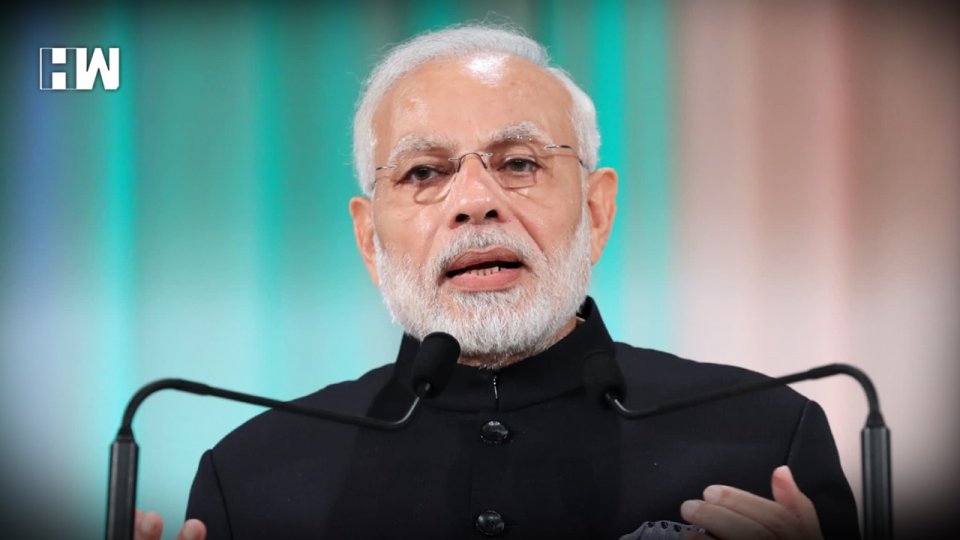The PM’s promise of ‘sabka vishwas’ will succeed only if there is a change in government attitude, or else it will be yet another empty political slogan.
The Prime Minister Mr Narendra Modi and his cabinet colleagues were sworn in yesterday. He has pruned 40% of his earlier ministry and has brought in many new faces in the Union Cabinet. With Mr Modi extending his populist slogan ‘ sabka saath, sabka vikas’ to ‘ sabka vishwas’ the new government should hopefully come in with fresh thinking. With its sheer majority and the rousing unprecedented popularity of Mr Modi, this government has the potential to deliver, what no other managed to do. It has no political compulsions of a fractious coalition to bog it down and can thus undertake long overdue tough economic reforms, such as in respect of land, labour, privatisation, cutting of fiscal deficit etc., which it failed to do in its first term. It perhaps did not have the political will or experience and was hobbled in the Rajya Sabha, both of which should not bother it in this tenure.
This government takes charge of admist a weakening economy and deteriorating macroeconomic fundamentals, which have primarily been of its own making. Much as any economy needs a capable and experienced Finance Minister, for its management and growth, yet, due to a host of reasons, particularly due to external factors, in an uber dynamic world, the best thought policies of the most capable FM can fail. Thus, even though an FM is expected to lead a team that formulates robust/relevant economic policies, yet their failure for bonafide reasons needs to be pardoned, even though there will be criticisms of the FM being incompetent.
If we are to review the policy formulations and economic and economic management of the Modi government 1.0, it did start on a challenging wicket but performed well up to November 2016. The UPA 2 had bequeathed it with an empty treasury, a government rife with massive corruption rampant policy paralysis and receding FDI, which collectively got India a tag of being part of the Fragile Five economies. But in the first half of Modi1.0, due to the massive dividend on account of a collapse in global crude oil prices and faith in Modi’s marketing blitzkrieg, the economy and the FDI did look up. But then came the domestic blunders of demonetisation, a hurriedly implemented GST and poorly executed flagship initiatives like ‘Make in India’ etc and the Trump induced global trade wars. A recovering Indian economy slowed down and is yet revive its fortunes.
The economy suffered and slowed down, primarily due to lack of a clear and well-thought strategy, as also due to the huge gap between a policy /program and its execution, leading to the poor performance of the government’s key programs. The new government is expected to be chastened enough to not repeat these giant mistakes. But the fresh thinking that is expected of this government is not just in the matter of much better coordinated and executed government policy and programs, but in a matter of its sheer attitude and conduct and it is expected that the new government will not function with the same attitude as the previous one did. The new government must change its attitude in a number of matters related to governance and policy formulation as compared to the earlier one in various matters, which are listed below : –
- Policies may fail and go wrong and such failure must be accepted, because if you do not, then there will be no rectification of mistakes. The government must be honest in admitting failures and rectifying them.
- The government loses its credibility if offered statistics manipulated and doctored. The previous government refused to accept facts like rising unemployment and receding economic growth and gave questionable statistics to prove its point, only losing its credibility in the process.
- The government must respect institutions and not meddle in them and erode their accountability and authority, as we saw in the case of the RBI and many others.
- State agencies like the Income Tax Department, ED, SFIO etc cannot be used for political purposes and to intimidate rivals. The previous government indulged in the rampantly and unscrupulously, but this one should not.
- Avoid heavy-handed regulation and compliance and treat SME’s differently. This sector has been suffering and languishing only because the government fails to differentiate between the large enterprises and the smaller ones.
The PM’s promise of ‘sabka vishwas’ will succeed only if there is a change in government attitude, or else it will be yet another empty political slogan, which will symbolise a massive missed opportunity. The new FM has a huge task on hand to restore investor trust in the Indian economy.
As an independent media platform, we do not take advertisements from governments and corporate houses. It is you, our readers, who have supported us on our journey to do honest and unbiased journalism. Please contribute, so that we can continue to do the same in future.

